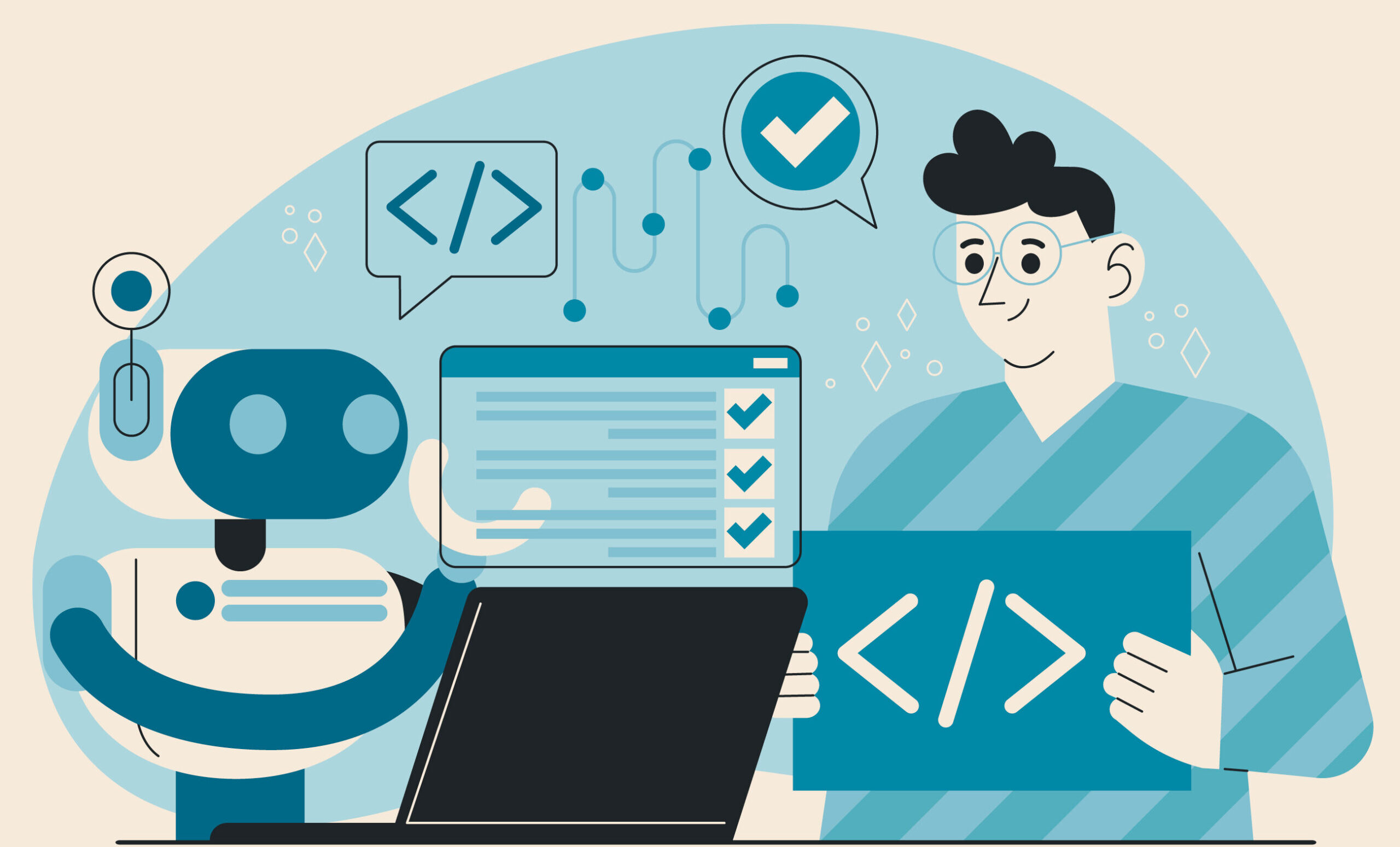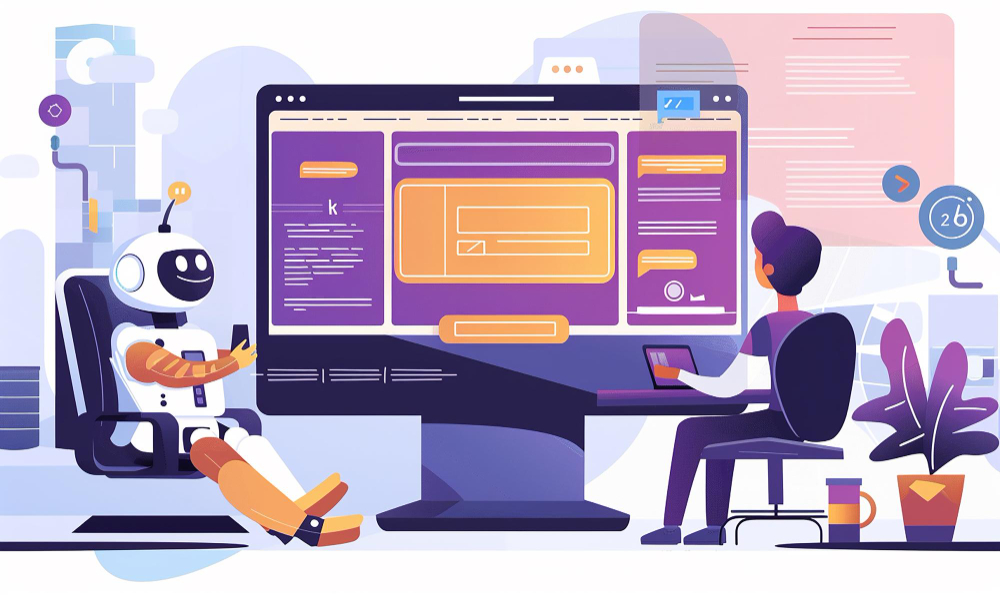What is the Impact of AI on Web and Mobile App Development?
- 1 Effects of AI on Web and Mobile App Development
- 1.1 Automates and Accelerates Development
- 1.2 Predictive Analytics to Understand User Needs
- 1.3 Enhanced Personalization to Tailor User Experiences
- 1.4 Enhances UI/UX Design
- 1.5 Voice and Conversational Interfaces to Improve Interactions
- 1.6 Advanced Security
- 2 Conclusion
The web and mobile apps field has dramatically impacted today’s evolving digital landscape. The most prominent technology of all, AI, continually deepens its influence. 2024, the global AI market is anticipated to reach $184 billion. It is expected to grow by $826.70 billion by 2030. Such growth signifies the influence of AI on a broad spectrum.
AI brings a high level of precision and automation that has frequently changed customer demands and preferences. Their increasing need for personalization and the best experiences has further raised the need for AI integration throughout multiple industry verticals to build business apps.
Developers or businesses can build robust apps, enabling people to engage with companies in a variety of spheres, thanks to AI. Also, you can employ a web development company to integrate robust features and functionalities and customize the app according to current market and user demands.
Simply put, AI has become an integral part of web and mobile apps, and businesses across various sectors need to realize its potential. So, in this write-up, we will talk about how AI impacts the web and mobile app ecosystems.
Effects of AI on Web and Mobile App Development

AI is not just a trend; it’s a requirement. It’s starting to take the lead in the era of rapid technological advancements. Even web apps are not new; the popularity of AI is continually influencing both web and mobile app ecosystems similarly. Let’s see how.
Automates and Accelerates Development
In a traditional approach, app coding and debugging were manual, complex, and time-consuming. It required human efforts, resources, and high-level expertise to be in place, adding to the expenses.
Here, the emergence of AI tools helps automate several aspects of development. For instance, tools like GitHub Copilot caveat the possibility of allowing suggested code snippets. As a result, the time is saved for developers to focus more on other complex concerns. Also, AI-backed apps can automatically generate code. Thus expediting the app development.
Predictive Analytics to Understand User Needs
Both web and mobile app developers usually rely on historical data to guess the user’s future needs and market trends during app development. This keeps the apps at the stake of whether they will be developed up to expectations.
Fortunately, predictive analytics backed by AI eliminates guesswork and helps optimize app development accurately. Developers can easily predict user behavior and assess purchase patterns to further design capabilities addressing these gathered insights.
This provides a more personalized and optimized experience and ensures increased engagement levels.
Enhanced Personalization to Tailor User Experiences
Earlier, web and mobile apps were developed to provide a one-size-fits-all experience to users with restricted personalization.
However, businesses must understand that web and mobile apps are designed to target unique users and their varying needs. Hence, leveraging AI for app development is critical. AI-focused web and mobile apps enable businesses to analyze user behavior and interactions and provide tailored suggestions.
Thus, businesses of any size or type can make the right decisions to help them provide their customers with best-in-class services.
Enhances UI/UX Design
UI/UX design usually involves manual testing and iteration. It often leads to a long and time-consuming design process.
The design process is expedited when leveraging AI for web or mobile app development. The AI-powered design tools help build adaptive interfaces that adjust to user needs in real time. Thus offering a more inclusive and engaging experience to the users.
In addition, predictive interfaces can be built using AI algorithms. It ensures mobile apps can assess how users execute tasks and predict subsequent actions. Thus creating a solution that offers intelligent suggestions to ease user experiences.
Voice and Conversational Interfaces to Improve Interactions
Again, the interactions were executed via GUIs using touchscreens and buttons. We talked about the traditional app development approaches.
Luckily, AI has evolved this development sphere by making voice and conversation AI the next big thing for user interactions with the apps. Developers can integrate voice assistants like Alexa and Siri into the app. These are AI-backed, enabling users to communicate via voice commands and ensuring a better user experience.
In addition, such interfaces allow hands-free interactions while providing quick support and personalizing user engagement.
Advanced Security
Given the rising incidence of data breaches, developing an advanced level of the app is inadequate. Your app must include the necessary features and functionalities to protect customer information and data. A secure app developed by an AI software development company can help you overcome this concern.
Modern app developers leverage AI in the app’s security systems ro secure customer data. It involves biometric checks and the capacity to identify suspicious activity patterns. Such security measures further ensure enhanced authentication processes while users enjoy secure app experiences.
Conclusion
To sum up, the effect of Artificial Intelligence on web and mobile app development brings a noticeable transformation for businesses across multiple verticals. As a result, companies can not neglect such an opportunity to build personalized, highly efficient, and robust apps that surpass user needs.
So, contact a reliable web and mobile app development services provider who leverages AI to build a pitch-perfect app and ensure that the expected outcomes are achieved.

















